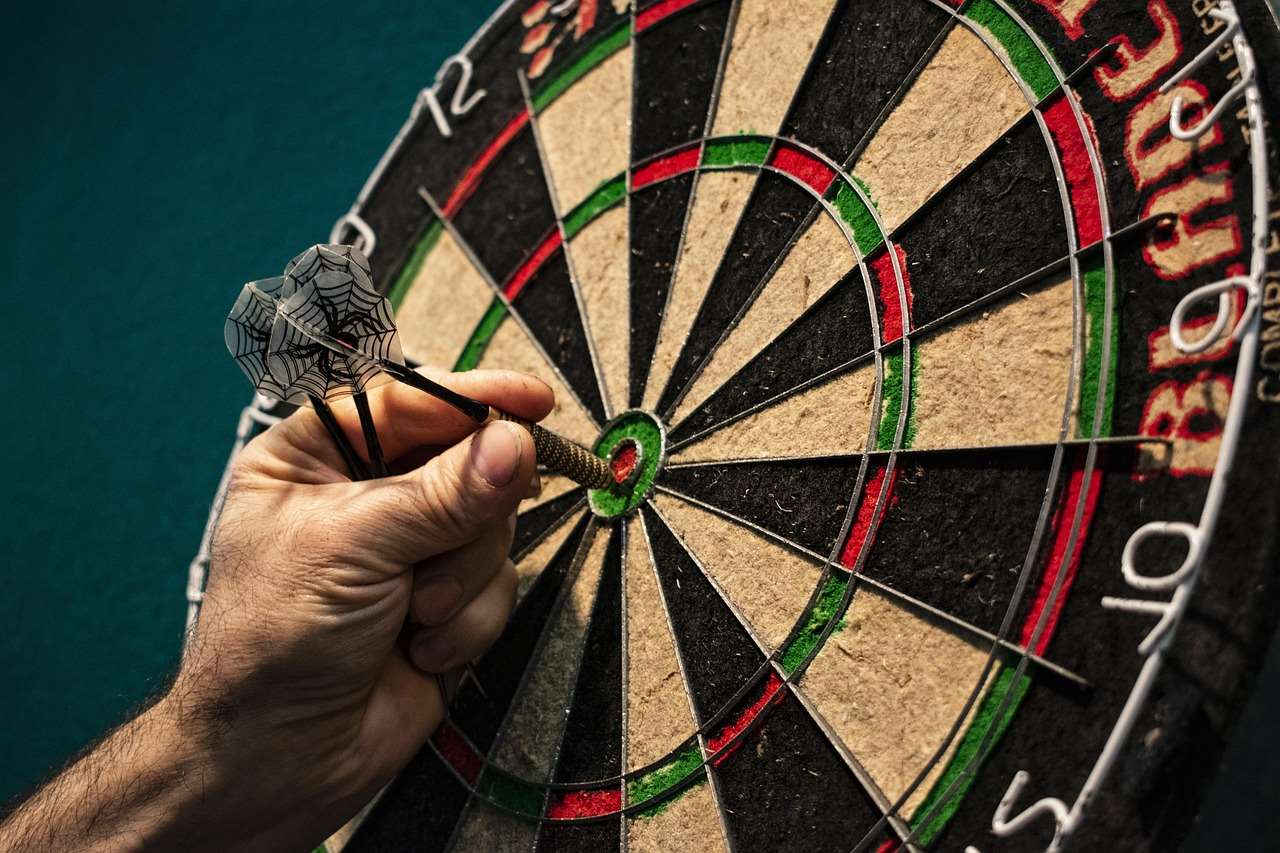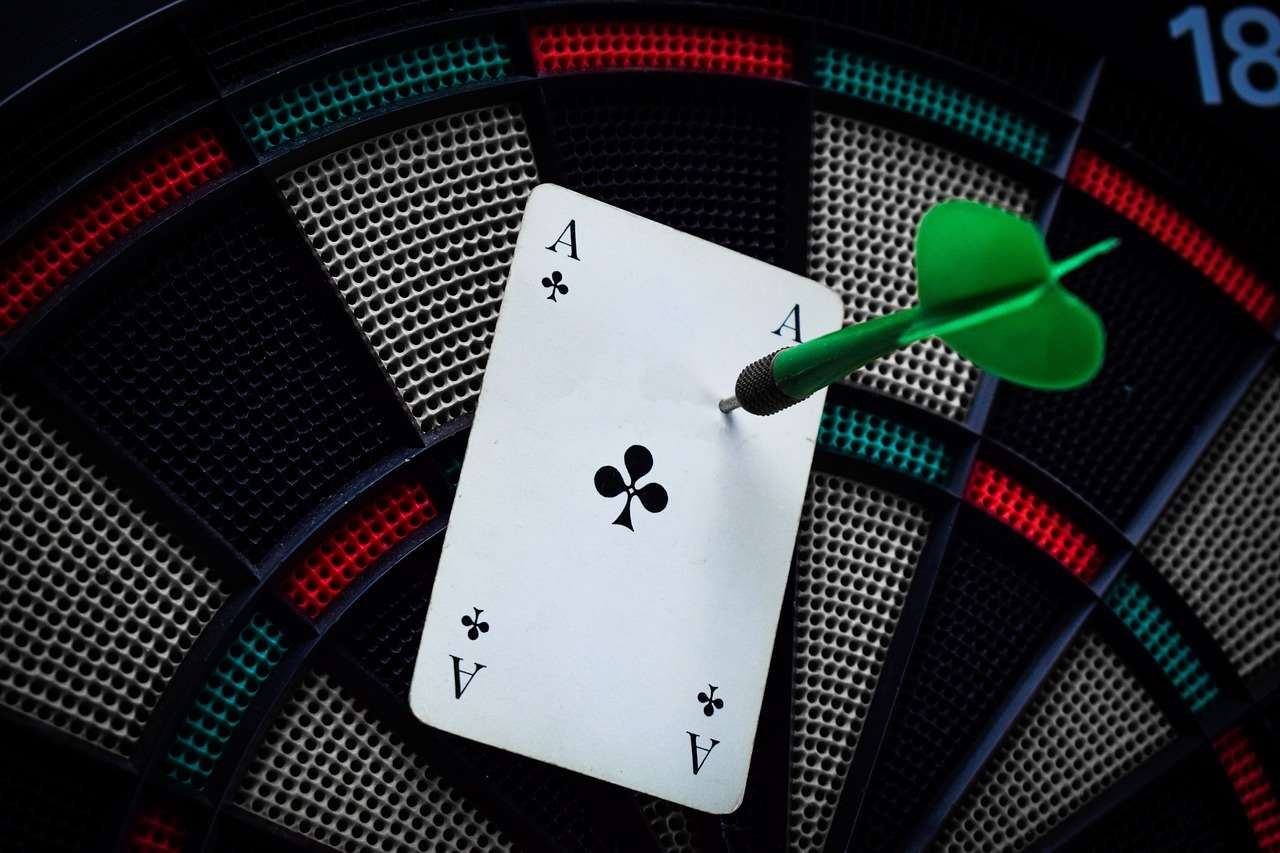Understanding Walk On Music Royalties is crucial for anyone using music publicly, especially in events like darts tournaments; they ensure artists and copyright holders are compensated for their work. This article will delve into the specifics of these royalties, how they work in the context of professional darts, and what organizers need to know to stay compliant.
⚠️ Still Using Pen & Paper (or a Chalkboard)?! ⚠️
Step into the future! The Dart Counter App handles all the scoring, suggests checkouts, and tracks your stats automatically. It's easier than you think!
Try the Smart Dart Counter App FREE!Ready for an upgrade? Click above!
Understanding Walk On Music Royalties
The electrifying atmosphere of a darts tournament is often significantly enhanced by the players’ choice of “walk-on music.” This tradition, where players select a song to accompany their entrance onto the stage, has become an integral part of the spectacle. However, behind the scenes, the use of these popular tunes necessitates a clear understanding of walk on music royalties. These payments are vital because they ensure that artists, songwriters, and publishers are fairly compensated when their music is used in a public performance.
Essentially, when a song is played publicly, whether at a darts tournament, a bar, or on the radio, royalties are triggered. These royalties are collected and distributed by organizations like Performing Rights Organizations (PROs) such as ASCAP, BMI (in the United States), and PRS for Music (in the United Kingdom). These organizations act as intermediaries, licensing the use of music and collecting royalties on behalf of their members.

For darts organizers, the implications are clear: they must obtain the necessary licenses to play music at their events. Failing to do so can result in significant legal repercussions, including fines and lawsuits. So, it’s crucial to ensure proper licensing for all music played, including the carefully selected walk-on anthems.
The Role of Performing Rights Organizations (PROs)
Performing Rights Organizations (PROs) play a vital role in the music industry. They act as intermediaries between copyright owners and music users. Key functions include:
- Licensing: Granting licenses to businesses and organizations that want to play music publicly.
- Royalty Collection: Collecting royalties from these licensees.
- Royalty Distribution: Distributing the collected royalties to the copyright holders – the songwriters and publishers.
Without PROs, it would be nearly impossible for individual copyright holders to track and collect royalties for every public performance of their music. They provide a streamlined and efficient system that benefits both creators and users. Understanding the licensing requirements is also crucial for a positive Darts Culture And Community Guide.
How Walk On Music Royalties Work in Darts
In the context of professional darts, the use of walk-on music adds a layer of entertainment and personality to the game. Players often choose songs that reflect their character or get the crowd pumped up. From “Chase the Sun” to “Livin’ on a Prayer,” these anthems are instantly recognizable and contribute significantly to the overall atmosphere. The importance of the Atmosphere At Live Darts Matches should not be understated.
However, the use of these tracks means that event organizers must be diligent in securing the appropriate licenses to avoid legal issues. The process typically involves contacting the relevant PROs in the countries where the events are being held and obtaining a blanket license that covers the public performance of music at the venue. The cost of these licenses will vary depending on factors such as the size of the venue, the number of attendees, and the amount of music being played.

Calculating Royalty Payments
The calculation of royalty payments can be complex and depends on various factors. PROs use different models to determine how much each copyright holder should receive. These models often take into account:
- Frequency of Play: How often the song is played during the event.
- Duration of Play: The length of the song that is played.
- Venue Size: The capacity of the venue where the music is performed.
- Ticket Sales: The revenue generated from ticket sales.
By analyzing these factors, PROs aim to fairly distribute royalties based on the actual usage of the music. Event organizers often need to provide detailed setlists to the PROs to facilitate accurate royalty calculations.
Ignoring these fees can have consequences. Here are the effects of **music licensing infringement**:
- Fines and penalties: Legal repercussions for unauthorized use of copyrighted music.
- Damage to reputation: Negative publicity impacting the event’s credibility.
Ensuring Compliance with Music Licensing Regulations
Staying compliant with music licensing regulations is not just a legal requirement; it’s also a matter of ethical responsibility. By paying walk on music royalties, event organizers are supporting the artists and creators who make the music that enhances the experience for fans. The Fan Culture At Live Darts is hugely important to protect.
Here are some practical steps that darts organizers can take to ensure compliance:
- Identify the Relevant PROs: Determine which PROs operate in the countries where the events are being held.
- Obtain a Blanket License: Secure a blanket license that covers the public performance of music at the venue.
- Maintain Accurate Records: Keep detailed records of all music played, including setlists and timings.
- Consult with Legal Counsel: Seek legal advice to ensure full compliance with all applicable laws and regulations.

By taking these steps, darts organizers can minimize their risk of legal issues and contribute to a sustainable music ecosystem.
The Role of Digital Streaming Services
The rise of digital streaming services has added another layer of complexity to music licensing. While these services typically handle the royalty payments for their own streams, using them for public performances requires a separate license. Simply playing music from a personal Spotify or Apple Music account at a darts tournament is not sufficient and can still result in copyright infringement. It’s also worth considering the Hospitality Packages Darts Events, and ensuring music is licensed correctly here.
Organizers need to obtain a “public performance license” even if they are using a streaming service as the source of the music. This license covers the right to play the music in a public setting, regardless of how it is accessed.
The Future of Walk On Music Royalties in Darts
As the popularity of darts continues to grow, the role of walk-on music is likely to become even more significant. The songs that players choose can become iconic, associated with their brand and adding to the overall spectacle of the event. This increased prominence highlights the importance of understanding and complying with walk on music royalties.

Looking ahead, we can expect to see further developments in the way music licensing is handled. Technology is playing an increasingly important role, with new platforms and tools emerging to simplify the process of obtaining licenses and tracking usage. For example, some companies are developing systems that use audio fingerprinting technology to automatically identify the music being played at an event and calculate the corresponding royalties.
These advancements could make it easier for event organizers to stay compliant and ensure that artists are fairly compensated for their work. It is vital to have proper Getting Tickets For Darts Events, and to support the industry with the correct music royalties.
The Impact of Emerging Technologies
Emerging technologies such as blockchain and artificial intelligence (AI) could also have a significant impact on the future of music licensing. Blockchain could provide a more transparent and secure way to track copyright ownership and distribute royalties. AI could be used to automate the process of identifying and classifying music, making it easier to calculate royalty payments.
These technologies have the potential to create a more efficient and equitable music ecosystem, benefiting both creators and users. As they continue to develop, it will be important for darts organizers to stay informed and adapt their practices accordingly.
Conclusion: Navigating Walk On Music Royalties for Darts Success
In conclusion, understanding and managing walk on music royalties is an essential aspect of organizing successful and legally compliant darts events. By obtaining the necessary licenses, maintaining accurate records, and staying informed about developments in music licensing, organizers can ensure that they are supporting the artists and creators who make the music that enhances the experience for fans. Ignoring these obligations can result in significant legal and financial repercussions, so it’s crucial to prioritize compliance.

The use of walk-on music adds significantly to the atmosphere and spectacle of darts tournaments, and by paying the appropriate royalties, event organizers can contribute to a sustainable music ecosystem. As the popularity of darts continues to grow, the importance of this aspect will only increase. Be sure to research the steps for Travel Tips For Darts Tournaments, but also to license your music. Take action today to ensure your events are fully compliant with all applicable music licensing regulations and enjoy the peace of mind that comes with knowing you’re doing the right thing. Contact your local Performing Rights Organization (PRO) to learn more about obtaining the necessary licenses for your events.
Hi, I’m Dieter, and I created Dartcounter (Dartcounterapp.com). My motivation wasn’t being a darts expert – quite the opposite! When I first started playing, I loved the game but found keeping accurate scores and tracking stats difficult and distracting.
I figured I couldn’t be the only one struggling with this. So, I decided to build a solution: an easy-to-use application that everyone, no matter their experience level, could use to manage scoring effortlessly.
My goal for Dartcounter was simple: let the app handle the numbers – the scoring, the averages, the stats, even checkout suggestions – so players could focus purely on their throw and enjoying the game. It began as a way to solve my own beginner’s problem, and I’m thrilled it has grown into a helpful tool for the wider darts community.